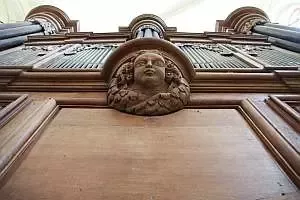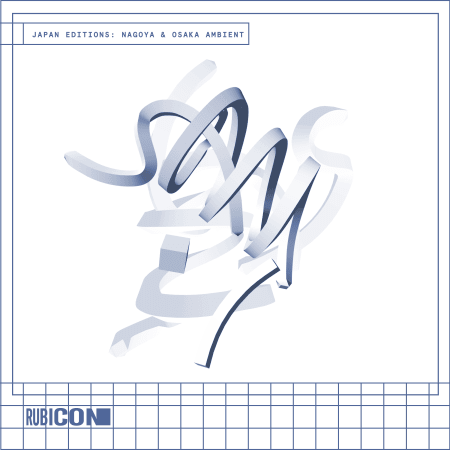Sonus Paradisi St. Michel en Thiérache (HAUPTWERK)
 P2P | 1 August 2024 | 8.93 GB
P2P | 1 August 2024 | 8.93 GB
圣米歇尔风琴模型
圣米歇尔修道院的前身本笃会修道院是法国北部中世纪的瑰宝之一。它始建于7世纪,首先在11 -13世纪蓬勃发展,然后在17 -18世纪。在它的历史上,修道院被大火烧毁了几次,最后一次是在1971年。幸运的是,当时该器官被拆除重建,因此躲过了破坏。它在以前的火灾、法国大革命和第一次世界大战中也没有受到破坏。
由于这段近乎奇迹的历史,让·博伊泽尔于1714年制造的乐器被认为是路易十四时代少有的保存完好的乐器之一。它完美地表达了17世纪晚期法国管风琴的语言,也就是所谓的大世纪时期。这种类型的风琴在重要的细节上不同于18世纪启蒙运动时期的法国风琴的设计(例如Dom bsamudos, fr. Isnard等)。
在70年代,这个风琴在Haerpfer和Hermann的工作室被恢复到原来的状态;新修复的仪器于1983年9月24日由安德烈·罗伊·索瓦主持落成典礼。止音的规格与1714年的乐器相同,音高也被保留了下来(大约比现代音高低一个音)。自1990年以来,管风琴制作人乔治·韦斯顿菲尔德(Georg westenfeld)负责乐器的维护。
该乐器由基于8英尺蒙特尔的大键盘钢琴和基于4英尺蒙特尔的正奏组成。第三本手册是带有独奏短号的Recit,第四本手册是带有回声短号止音的Echo。总的来说,这架风琴有四个操作手册和一个踏板,总共有31个说话停止。管风琴以其异常美丽的长笛(声音几乎“水透明”),多彩的芦苇和温暖的主音而闻名。
St. Michel Organ Model
The former Benedictine monastery of St. Michel en Thierache is one of the mediaeval gems of Northern France. Founded in 7th century, it flourished first during the 11th-13th, and then in the 17th-18th, centuries. During its history, the abbey was damaged several times by fire, the last time in 1971. Fortunately, the organ was dismantled for reconstruction at that time, so it escaped destruction. It also escaped damage during previous fires, the French revolution, and the First World War.
Because of this almost miraculous history, the instrument built by Jean Boizard in 1714 is believed to be one of the rarely preserved instruments representative of the era of Louis XIV. It perfectly expresses the language of the French organ of the late 17th century, of the so called Grand Siecle period. This type of organ is different in important details from the design of the French organ during the Enlightment of 18th century (e.g. Dom Bédos, fr. Isnard etc.).
The organ was restored to its original state during the seventies in the workshop of Haerpfer and Hermann; the inauguration of the newly restored instrument took place on 24th September 1983 by André Isoir. The specification of the stops is identical to the 1714 instrument and also the pitch was retained (about one tone below the modern pitch). Since 1990, the organbuilder Georg Westenfelder is responsible for the maintenance of the instrument.
The instrument is composed of the Grand Clavier based on an 8-foot Montre, and the Positif based on a 4-foot Montre. The third manual is the Recit with a solo cornet, and the fourth manual is the Echo, which contains an echo cornet stop. In total, the organ has four manuals and a pedal with a total of 31 speaking stops. The organ is known for its exceptionally beautiful flutes (in sound almost “water transparent”), colorful reeds, and warm principals.





